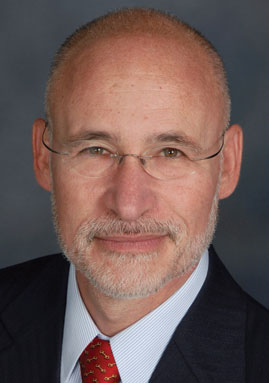 Tuesday, Jan. 22, was the anniversary of the Supreme Court decision, known as Roe v. Wade.
Tuesday, Jan. 22, was the anniversary of the Supreme Court decision, known as Roe v. Wade.
Since that day in 1973, our country has been embroiled in significant moral and theological issues:
• When does life begin
• What constitutes life
• Who has “control” over such life
• What is the role of government in protecting life
• What is the role of religion in America in influencing government
On the 40th anniversary of the Supreme Court’s ruling, I am writing to let the world know: I am pro-life. Permit me to explain.
My views are influenced by a multitude of sources: my family, my community, media, cultural biases and norms. As one might imagine, faith and religion play an enormous role in shaping what I believe. And Judaism, as a tradition, based on both Torah and its legal synthesis, is — for me — the dominant determiner of my views. (And parenthetically, the Bible — which includes the Torah — is also the primary reference point for many Christians who hold fundamentalist beliefs.)
So, what does the Bible say? Here is THE relevant quote:
“And if two men strive together, and hurt a woman with child, so that her fruit departs, and yet no [other] harm follows, he shall be fined ... and he shall pay as the judges determine. But if any [other] harm follows, then he shall pay life for life, eye for eye, tooth for tooth, hand for hand, foot for foot, burn for burn, wound for wound, stripe for stripe.” (Exodus 21:22-25)
Simply put, if the woman loses the fetus (and by extension, this applies to abortion), then there is a penalty paid. However, it is not life. For if the woman were to die, then the attacker has to sacrifice his own life. The fetus clearly has value but it does not hold the legal status of “living.” There is only one life that matters. The woman’s.
In the 3,500 years since this statement was first made, Jewish tradition and law (halachah) has evolved and made many detours. Yet, the essential elements of the Torah remain true: a fetus does not have the same status as that of the woman. While it may be potential life, it is not the priority. The woman is.
Thus, there is (in my opinion) only one position to hold, assuming one wishes to follow the Bible: Abortion is a legal and moral imperative, especially if the life of the woman is endangered. Even if there is no danger, abortion is NOT the killing of a person ... for personhood is reserved only for those who have been born.
So, why am I pro-life?
Because it is the life of the woman for which I am most concerned. I care about all life, even the potentiality of life. Yet, when a woman has a need for abortion — regardless of the reasoning — it is her life and the sacredness of that life that has my attention, my concern and my unwavering support. Unequivocally, this is the position that Torah COMMANDS.
I resent mightily those who characterize my position as homicide or infanticide, that I am in favor of killing babies. Or who suggest that they — and they alone — are pro-life. I am a lover of life and will protect it however I can. The difference is the focus. I choose to support a position that loves and protects the life that is over a life that might yet be.
Sadly, our country has chosen to legislate what is essentially personal moral decision-making. We do not know what will happen when the Supreme Court someday revisits Roe v. Wade. Or what further easings/restrictions will be placed on a woman’s right and ability to seek an abortion. Since I cannot keep the conversation out of legislative and judicial hands, it is my job (and yours) to speak truth to power in whatever forum we can. On the anniversary of Roe v. Wade, I do so by invoking Torah truth. I choose to follow Torah. I choose to believe in its wisdom. I choose to support abortion. As a result, I am proud to say: I am pro-life.
Rabbi Arthur Nemitoff is senior rabbi of The Temple, Congregation B’nai Jehudah.


